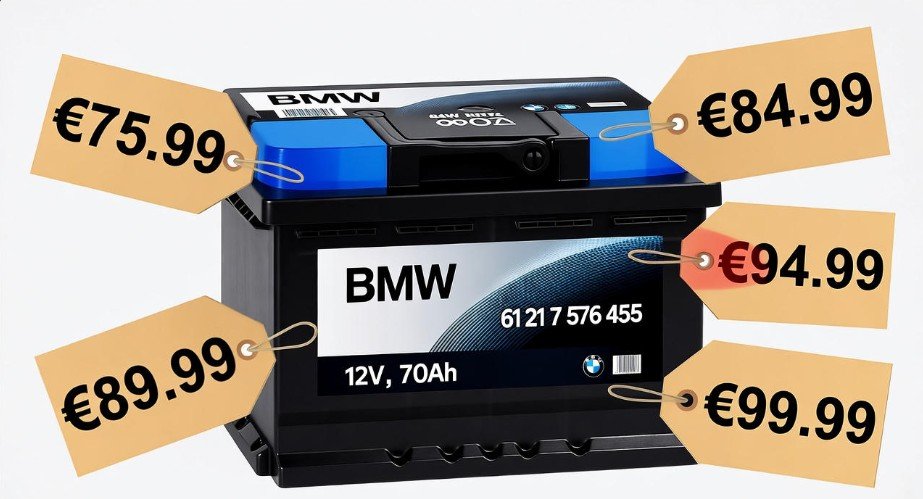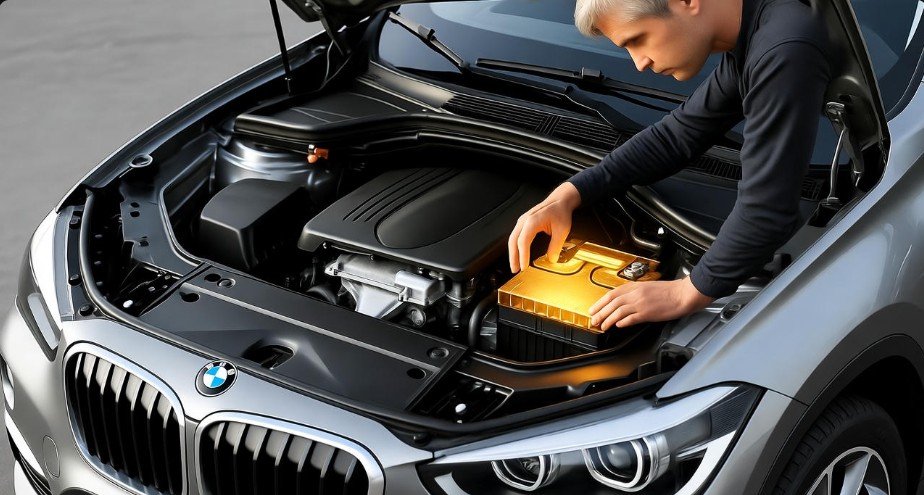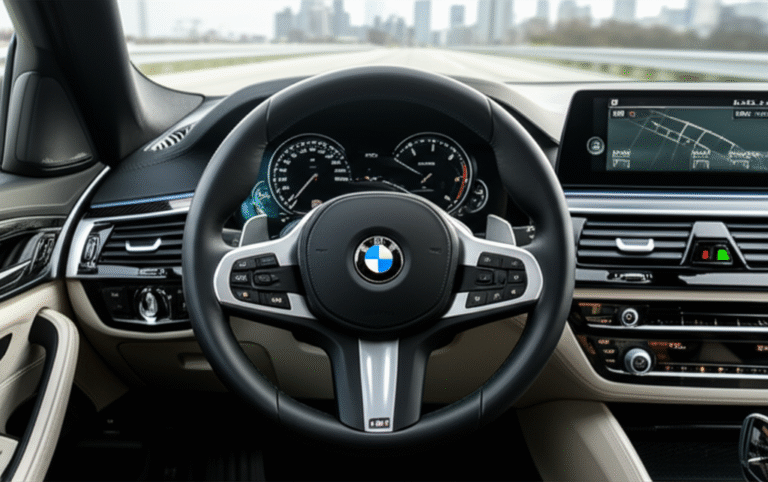BMW X1 Car Battery: 6 Prices Today

BMW X1 Car Battery: 6 Prices Today You Need to Know. Get upfront cost ranges and factors influencing BMW X1 battery replacement expenses in the USA, ensuring you’re prepared for maintenance.
Key Takeaways
- Understand BMW X1 battery replacement costs.
- Compare OEM vs. aftermarket battery options.
- Factor in labor when budgeting for your battery.
- Learn about battery lifespan and maintenance tips.
- Discover common BMW X1 battery types and their prices.
- Find out when to replace your BMW X1 car battery.
Your BMW X1 is a marvel of German engineering, blending luxury with everyday practicality. But like all vehicles, its electrical heart, the car battery, has a finite lifespan. When it’s time for a replacement, you might wonder about the cost. Navigating the world of car batteries can seem complex, with various brands, types, and price points. This guide will break down the typical pricing for a BMW X1 car battery today, offering clarity and confidence for your next maintenance decision.
We’ll explore the factors that influence the price, from the type of battery you choose to where you get it installed. Understanding these elements will help you make an informed choice that suits your budget and keeps your X1 running smoothly. Let’s dive into the details of BMW X1 car battery prices and what you can expect.
Understanding BMW X1 Battery Replacement Costs

Replacing your BMW X1 car battery is a crucial maintenance task. The cost can vary significantly, but understanding the main components of the price will help you budget effectively. The overall expense is typically divided into two main parts: the battery itself and the labor involved in its installation.
The battery price is influenced by several factors, including the brand, the technology of the battery (like AGM vs. standard lead-acid), its capacity (measured in Cold Cranking Amps or CCA), and whether it’s an Original Equipment Manufacturer (OEM) part or an aftermarket alternative. OEM batteries are made by or for BMW and are designed to meet specific performance standards for your X1 model. Aftermarket batteries, on the other hand, are produced by third-party manufacturers and can offer a wider range of price points, sometimes at a lower cost.
Labor costs are also a significant consideration. Some X1 models have batteries located in more accessible positions, making them quicker and cheaper to replace. Others, particularly those with batteries in the trunk or under a seat, require more intricate work and thus higher labor charges. The hourly rates of your chosen service center – whether it’s a BMW dealership, an independent mechanic, or a DIY installation cost – will also play a role.
BMW X1 Car Battery Prices: A Detailed Look at Today’s Market
The market for BMW X1 car batteries offers a range of options, and prices can fluctuate based on several variables. Here, we break down the typical cost ranges you might encounter today for a BMW X1 car battery replacement in the USA.
Factors Influencing BMW X1 Battery Price
Before we look at specific prices, it’s essential to understand what drives these costs:
- Battery Type: Modern BMW X1 models often require Absorbed Glass Mat (AGM) batteries. These are more expensive than traditional flooded lead-acid batteries but offer better performance, longer life, and greater resistance to vibration and leakage, which is vital for the sophisticated electrical systems in luxury vehicles like the X1.
- Brand Reputation: Established brands known for quality and reliability, such as Bosch, VARTA, Odyssey, or even BMW’s own sourced batteries, tend to be more expensive than lesser-known or budget brands.
- Battery Specifications: The battery’s capacity (CCA) and dimensions must match your specific X1 model’s requirements. Higher CCA batteries, for example, might cost more.
- Warranty: Batteries with longer warranty periods (e.g., 3-5 years) often come with a higher upfront cost, reflecting the manufacturer’s confidence in their product’s durability.
- Retailer and Location: Prices can vary between dealerships, independent auto shops, and online retailers. Geographic location within the USA can also influence pricing due to regional market conditions and shipping costs.
- Installation: Whether you opt for dealership installation, an independent shop, or plan to install it yourself will significantly impact the total cost. Dealerships generally have the highest labor rates.
Estimated Price Ranges for BMW X1 Car Batteries Today
Based on current market data, here are the estimated price ranges for a BMW X1 car battery. Remember these are approximate and can change.
| Battery Type/Brand Category | Estimated Price Range (Battery Only) | Typical Warranty |
|---|---|---|
| Premium Aftermarket (AGM – e.g., Bosch, VARTA) | $220 – $350 | 3-4 years |
| OEM BMW (Original Equipment) | $280 – $450 | 1-2 years (often shorter than premium aftermarket) |
| Mid-Range Aftermarket (AGM) | $180 – $280 | 2-3 years |
| Budget Aftermarket (AGM or standard, if applicable to older models) | $150 – $220 | 1-2 years |
| High-Performance/Specialty (e.g., Odyssey) | $300 – $500+ | 3-5 years |
Note: These prices are for the battery only and do not include installation labor. Prices are subject to change based on demand, promotions, and specific retailers. Always verify with your local dealer or auto parts store for the most accurate pricing for your specific BMW X1 model year and trim.
Types of BMW X1 Car Batteries and Their Cost Implications
The technology within a car battery plays a significant role in its price and performance. For a modern BMW X1, you’ll primarily encounter two main types, with one being dominant for newer models.
1. Absorbed Glass Mat (AGM) Batteries
Cost: Higher than traditional types, typically $180 – $450+ for the battery alone.
AGM batteries are the standard for most BMW X1 models manufactured in the last decade or so. In an AGM battery, the electrolyte is suspended in separators made of fiberglass. This design offers several advantages:
- Superior Power Delivery: They can handle high power demands, essential for modern vehicles with numerous electronic accessories and start-stop technology.
- Deeper Discharge Cycles: AGM batteries are more resilient to repeated deep discharges, which is common in vehicles with automatic start-stop systems turning the engine off at idle.
- Longer Lifespan: Generally, they last longer than conventional batteries, often 3-5 years or more, under optimal conditions.
- Vibration Resistance: The compressed plates and absorbed electrolyte make them highly resistant to vibrations, which is beneficial for vehicle longevity.
- Safety: They are spill-proof and less prone to gassing, making them safer for installation in various vehicle locations.
Due to these benefits, AGM batteries come with a higher price tag. BMW uses AGM batteries to ensure the reliability of its complex electrical systems and to support features like start-stop functionality. For a BMW X1, insisting on an AGM battery is usually non-negotiable for optimal performance and compatibility.
2. Enhanced Flooded Battery (EFB) Batteries
Cost: Slightly higher than standard flooded batteries, generally $150 – $250.
While most X1 models use AGM, some earlier or lower-spec models might have used or could potentially be fitted with EFB batteries. EFB technology is an advancement on traditional flooded batteries, offering better performance and cycle life, especially for vehicles with basic start-stop systems. They are a step up from standard lead-acid but not as robust as AGM for heavy electrical loads and frequent deep cycling.
If your X1 is compatible with an EFB, it might offer a slightly more budget-friendly option compared to an AGM battery. However, it’s crucial to confirm your vehicle’s specific requirements. Installing the wrong type can lead to premature failure and potential damage to your car’s electrical system.
3. Standard Flooded Lead-Acid Batteries
Cost: Lowest, typically $100 – $200.
These are the most traditional car batteries. They are filled with liquid electrolyte and have vented caps. While they are the most affordable, they are generally not suitable for modern BMW X1s due to their demanding electrical systems and use of start-stop technology. Their lifespan is shorter, they are more susceptible to damage from vibration, and they cannot handle deep discharges as well as AGM or EFB batteries. It’s highly unlikely you’ll find a standard flooded battery as the recommended or compatible option for most BMW X1 models.
4. Lithium-Ion Batteries (Less Common for Starting)
Cost: Significantly higher, potentially $800 – $1500+.
While lithium-ion technology is prevalent in electric and hybrid vehicles, it’s rarely used as a primary starter battery in conventional internal combustion engine cars like the BMW X1, primarily due to cost and complexity for this application. Some high-performance aftermarket companies might offer them for specialized racing applications, but for the average X1 owner, this is not a practical or cost-effective option.
BMW X1 Battery Installation: Labor Costs and DIY Considerations
The price of a BMW X1 car battery isn’t just the component itself; installation is a significant part of the total cost. The complexity of battery placement in different X1 generations and the labor rates of the service provider dramatically affect the final bill.
Dealership vs. Independent Mechanic vs. DIY
- BMW Dealership:
- Pros: Technicians are BMW-certified, use OEM parts, and have specialized knowledge of your X1’s systems. They often offer a warranty on both parts and labor.
- Cons: Typically the most expensive option due to higher overhead and labor rates.
- Estimated Labor Cost: $100 – $300+ (depending on complexity and time)
- Independent Mechanic:
- Pros: Often more affordable than dealerships. Experienced with various makes and models, including BMWs. Can sometimes offer a choice between OEM and quality aftermarket batteries.
- Cons: Quality of service and expertise can vary. Ensure they have experience with modern European vehicles and battery registration.
- Estimated Labor Cost: $75 – $200
- DIY (Do It Yourself):
- Pros: The cheapest option, saving significantly on labor costs.
- Cons: Requires basic automotive knowledge, proper tools, and safety precautions. Modern BMWs require battery registration or coding after replacement, which a DIYer might not be able to perform without specialized tools. Incorrect installation can lead to electrical issues or void warranties.
- Estimated Labor Cost: Free (plus tool costs if you don’t have them)
The Importance of Battery Registration (Coding)
A critical step for many modern BMWs, including the X1, after replacing the battery is “battery registration” or “coding.” This process informs the vehicle’s Battery Management System (BMS) that a new battery has been installed and its specifications (like capacity and type). This ensures the BMS charges the new battery correctly. Without proper registration, the new battery might not charge efficiently, leading to a reduced lifespan or electrical system malfunctions.
Dealerships and most reputable independent shops have the necessary diagnostic tools (like ISTA for BMW) to perform this registration. If you are considering a DIY installation, factor in the potential cost of having a shop perform just the registration, or the investment in a diagnostic tool capable of this function.
For example, many BMW X1 models utilize a Battery Management System (BMS) that monitors battery health, charging cycles, and age. When a battery is replaced, the BMS needs to be informed so it can reset its parameters. This is crucial for optimal performance and battery longevity. Failing to register the new battery can lead to issues such as:
- Inconsistent charging, shortening the new battery’s life.
- Malfunctions in the start-stop system.
- Erratic behavior from other electrical components.
- Dashboard warning lights related to the electrical system.
You can learn more about the role of the BMS and battery registration on official BMW forums or automotive diagnostic resource websites. For instance, resources from the SAE International often delve into the technical aspects of vehicle electronics and battery management.
Six BMW X1 Car Battery Price Scenarios Today
Let’s put together some realistic scenarios for purchasing and installing a BMW X1 car battery today in the USA. These prices are estimates and will vary based on your location, the specific X1 model year, and the chosen service provider.
| Scenario | Battery Type/Brand | Battery Cost | Estimated Labor Cost | Total Estimated Cost | Notes |
|---|---|---|---|---|---|
| 1. OEM Replacement at BMW Dealership | BMW OEM AGM Battery | $350 – $420 | $150 – $250 (includes registration) | $500 – $670 | Guaranteed fitment, maximum assurance, but highest price. |
| 2. Premium Aftermarket at Dealership | Bosch or VARTA AGM Battery | $280 – $350 | $120 – $200 (includes registration) | $400 – $550 | High quality, slightly cheaper than OEM, good warranty. |
| 3. Quality Aftermarket at Independent Shop | Mid-range AGM Battery (e.g., Duralast, DieHard) | $200 – $270 | $100 – $180 (includes registration) | $300 – $450 | Good balance of price and performance; shop experience is key. |
| 4. Budget Aftermarket at Independent Shop | Lower-tier AGM Battery | $160 – $220 | $90 – $150 (includes registration) | $250 – $370 | Cheapest professional install; check warranty and battery reviews carefully. |
| 5. DIY Purchase (Online/Auto Parts Store) | Premium Aftermarket AGM (e.g., Bosch) | $220 – $320 | $0 (DIY) + possible $75-$150 for registration at a shop | $220 – $320 (battery only) / $300 – $470 (with registration) | Requires tools, technical skill, and access to registration service. |
| 6. Budget DIY Purchase + Registration | Mid-range Aftermarket AGM | $180 – $250 | $0 (DIY) + possible $75-$150 for registration at a shop | $180 – $250 (battery only) / $255 – $400 (with registration) | Most cost-effective if you’re comfortable with DIY and finding a registration service. |
These scenarios highlight how much the choice of battery and service provider can impact the final cost. Always get a detailed quote that specifies the battery brand, warranty, and all labor charges, including battery registration if applicable.
When to Replace Your BMW X1 Car Battery
Knowing when to replace your BMW X1 car battery is as important as knowing the cost. Ignoring signs of a failing battery can leave you stranded and potentially cause damage to other electrical components. Here are the key indicators:
- Age: Most car batteries last 3-5 years. If yours is older than this, it’s wise to have it tested regularly, even if it seems to be working fine. BMW batteries, especially AGM types, are designed for longevity, but they do degrade over time.
- Slow Engine Crank: When you start your car, if the engine cranks slower than usual, it’s a classic sign that the battery is losing its power.
- Electrical Issues: Dim headlights, flickering interior lights, issues with power windows, or strange behavior from the infotainment system can all point to a weak battery struggling to supply consistent voltage.
- Warning Lights: The battery warning light on your dashboard (often looks like a battery symbol) indicates a problem with the charging system or the battery itself. Don’t ignore this light!
- Corrosion on Terminals: While some corrosion can be cleaned, excessive buildup on the battery terminals might indicate leakage or a failing battery casing.
- Swollen Battery Case: Extreme heat or overcharging can cause the battery case to swell or deform. This is a dangerous sign, and the battery should be replaced immediately.
- Bad Smell: A rotten-egg smell emanating from the battery can indicate a leak or internal damage.
Regular checks at your preferred service center are the best way to stay ahead of battery failure. Many auto parts stores offer free battery testing services, which can give you an indication of your battery’s health. For a more definitive assessment, especially concerning its ability to handle the demands of your BMW X1’s electronics, a professional diagnostic test is recommended.
Pro Tip: Always check your car battery health before long drives or during seasonal changes.
Maintaining Your BMW X1 Battery for Longevity
While batteries have a limited lifespan, proper maintenance can help extend it and ensure optimal performance. For your BMW X1, consider these tips:
- Keep Terminals Clean: Periodically inspect the battery terminals. If you see white or blueish powdery buildup (corrosion), clean it with a wire brush and a mixture of baking soda and water. Ensure the connections are tight after cleaning.
- Protect Against Extreme Temperatures: Heat is a battery’s worst enemy, accelerating degradation. In very hot climates, ensure your car’s cooling system is functioning well. In extreme cold, a fully charged battery performs better.
- Avoid Deep Discharges: Try not to leave lights, accessories, or the ignition on with the engine off for extended periods, as this can deeply discharge the battery. If your X1 has a start-stop system, it’s designed to manage this, but excessive prolonged use of electronics without the engine running can still strain the battery.
- Ensure Proper Charging: For BMWs with complex charging systems, ensure the alternator is functioning correctly. If you use a battery charger, make sure it’s compatible with AGM batteries.
- Check for Battery Registration: As mentioned, if your battery has been significantly drained or replaced, ensure it’s properly registered with the car’s Battery Management System.
The complexity of modern BMW electrical systems means that a healthy, well-maintained battery is critical. If you’re unsure about any maintenance tasks, consult your owner’s manual or a qualified BMW technician.
BMW X1 Car Battery FAQ
Here are answers to some common questions beginner car owners have about their BMW X1 car batteries.
1. What type of battery does a BMW X1 need?
Most BMW X1 models, especially those from 2010 onwards, require an Absorbed Glass Mat (AGM) battery. Always check your owner’s manual or consult with a BMW specialist to confirm the exact type and specifications for your specific model year and trim.
2. How long does a BMW X1 battery typically last?
A well-maintained BMW X1 battery, particularly an AGM type, typically lasts between 3 to 5 years. However, factors like climate, driving habits, and maintenance can influence its lifespan.
3. Can I replace my BMW X1 battery myself?
While physically replacing the battery is possible for those with basic mechanical skills and tools, it’s not always straightforward. Modern BMWs require the new battery to be “registered” with the car’s computer system for proper charging. If you don’t have the specialized tools for registration, it’s often best left to a professional.
4. What does “battery registration” mean for my BMW X1?
Battery registration is a process using diagnostic software to inform the car’s Battery Management System (BMS) that a new battery has been installed. This allows the BMS to adjust charging parameters for optimal battery life and performance, especially important for start-stop systems.
5. Is an OEM BMW battery worth the extra cost?
OEM BMW batteries are designed to meet the exact specifications and quality standards of your X1. While they are typically more expensive than aftermarket options, they offer the assurance of perfect fitment and integration with your vehicle’s complex electrical systems. For many, the peace of mind is worth the investment.
6. How can I tell if my BMW X1 battery is failing?
Signs include slow engine cranking, dimming headlights, electrical accessories behaving erratically, and dashboard warning lights (like the battery or check engine light). A professional battery test can provide a definitive answer.
7. Where can I find the best price for a BMW X1 car battery?
Prices vary significantly. Comparing quotes from BMW dealerships, reputable independent European car repair shops, and online auto parts retailers can help you find the best deal. Factor in installation and battery registration costs for a true comparison.
Conclusion
Maintaining your BMW X1 means keeping all its components in top condition, and the car battery is no exception. Understanding the pricing for a BMW X1 car battery today, which typically ranges from $150 to over $450 for the battery alone, empowers you to prepare for this essential maintenance. Remember that costs are influenced by battery technology (primarily AGM for the X1), brand, and where you choose to purchase and install it. Dealerships offer OEM parts and specialized service at a premium, while independent shops can provide a good balance of cost and expertise, especially if they can handle battery registration. For the DIY enthusiast, remember to factor in the cost and capability of performing battery registration to ensure your new battery functions correctly.
By considering the factors we’ve discussed – from the type of battery to the necessity of registration – you can confidently approach your next BMW X1 battery replacement, ensuring your vehicle continues to deliver the performance and luxury you expect from a BMW.



